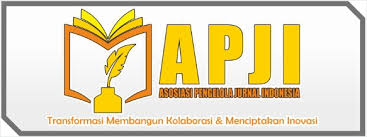The Urgency of Upgrading the Class of the Banyumas Regency DLH UPTD
DOI:
https://doi.org/10.70610/iare.v3i2.978Keywords:
Class Improvement, Banyumas, UPTD DLH Class, UrgencyAbstract
The purpose of this study is to analyze the urgency and feasibility of upgrading the Banyumas Regency Environmental Service UPTD from class B to class A in order to improve community services, accountability, and environmental management effectiveness. This research employs content analysis to describe and illustrate data findings in a case study of the Regional Technical Service Unit (UPTD) of the Banyumas Regency Environmental Service. The post-bureaucracy theory is used as the main theoretical framework. Data collection focuses on examining the urgency and feasibility of upgrading the UPTD from class B to class A. The analysis shows that upgrading the UPTD class at the Banyumas Regency Environmental Service is urgently needed to improve community services, guidance, empowerment, and responsiveness to environmental complaints. The transformation of the UPKP into a Waste and Environmental Management Unit (UP2LH) is justified, as it has met the requirements for a class A UPTD under Article 24 paragraph (3) letter a of the Minister of Home Affairs Regulation Number 12 of 2017. These requirements include carrying out two or more functions, covering more than one sub-district, and having a workload exceeding 10,000 effective working hours per year. The upgrade aims to enhance accountability, performance, and effectiveness in environmental management, in line with the post-bureaucracy paradigm that prioritizes public interest, quality, and value.
References
Barzelay, M. (2019). Public management as a design-oriented professional discipline. In Public Management as a Design-Oriented Professional Discipline. Edward Elgar Publishing.
Denning, S. (2019). Post-bureaucratic management goes global. Strategy & Leadership, 47(2), 19–24.
Gruber, J. (2023). Controlling bureaucracies: Dilemmas in democratic governance. Univ of California Press.
Ingaggiati, M., Guerci, M., Barbato, G., & Ruffini, R. (2025). The Bureaucracy versus Post‐Bureaucracy Paradox in Public Administration: A Historical Perspective on the Selection and Training of Public Managers. Public Administration.
Jakobus, B., Sena, P. H. L., & Souza, C. (2022). Bureaucracy. In Leadership Paradigms for Remote Agile Development: How To Lead Your Team Remotely (pp. 123–131). Springer.
Kallio, T. J., Kallio, K.-M., & Blomberg, A. (2020). From professional bureaucracy to competitive bureaucracy–redefining universities’ organization principles, performance measurement criteria, and reason for being. Qualitative Research in Accounting & Management, 17(1), 82–108.
Kanter, R. M. (2019). The future of bureaucracy and hierarchy in organizational theory: a report from the field. In Social theory for a changing society (pp. 63–93). Routledge.
Martela, F. (2019). What makes self-managing organizations novel? Comparing how Weberian bureaucracy, Mintzberg’s adhocracy, and self-organizing solve six fundamental problems of organizing. Journal of Organization Design, 8(1), 1–23.
Meier, K. J., Compton, M., Polga-Hecimovich, J., Song, M., & Wimpy, C. (2019). Bureaucracy and the failure of politics: Challenges to democratic governance. Administration & Society, 51(10), 1576–1605.
Monteiro, P., & Adler, P. S. (2022). Bureaucracy for the 21st century: Clarifying and expanding our view of bureaucratic organization. Academy of Management Annals, 16(2), 427–475.
Muslih, M. (2021). Towards a Better Organizational Structure. Journal of Business and Economics, ISSN, 2155–7950.
Tompkins, J. R. (2023). Organization theory and public management. Waveland Press.
Williams, M. J. (2021). Beyond state capacity: bureaucratic performance, policy implementation and reform. Journal of Institutional Economics, 17(2), 339–357.
Downloads
Published
How to Cite
Issue
Section
License
Copyright (c) 2025 Sri Huning Triastiningsih, Denok Kurniasih

This work is licensed under a Creative Commons Attribution-ShareAlike 4.0 International License.
License: CC BY-SA 4.0 (Creative Commons Attribution-ShareAlike 4.0 International License)






 MoU
MoU 


